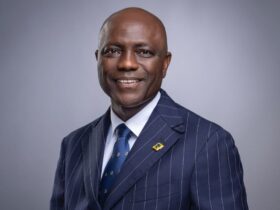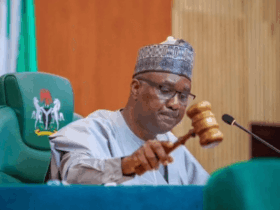Former NERC Chairman Opposes Electricity Act Amendment, Calls for Patience and Stability

Sam Amadi, who previously chaired the Nigerian Electricity Regulatory Commission (NERC), has voiced strong concerns over the current efforts to revise the Electricity Act. He cautioned that such rapid legislative changes could undermine the delicate advancements and stability achieved within Nigeria’s power sector.
Speaking at the 10th anniversary event of the Association of Power Generation Companies of Nigeria held in Abuja, Amadi urged stakeholders to exercise patience and perseverance. He advocated for enhancing the existing framework rather than adopting a disruptive “tear down and rebuild” approach. According to him, rushing to amend the Act will not address the core challenges facing the sector, especially issues related to liquidity and insufficient investment in infrastructure.
“There is a tendency to seek quick fixes,” Amadi remarked. “We have initiated the development of state-level electricity markets, but in my opinion, this process was expedited without fully considering all factors. Since we are already on this path, abandoning it now would be counterproductive.”
He elaborated, “Some are pushing for amendments to the Electricity Act, but we must accept that both setbacks and successes are part of building this electricity market. It will be a process of trial and error. We should not be so averse to failure that we abandon experiments at the first sign of difficulty. Instead, we should focus on incremental adjustments rather than complete overhauls.”
Amadi lamented the politicization of Nigeria’s electricity sector, where policymakers often seek hasty solutions that end up exacerbating problems. “There needs to be stability to allow the system to function, learn from mistakes, and gradually improve through continuous refinement,” he added.
While acknowledging the widespread dissatisfaction with unreliable power supply, Amadi emphasized that dismissing the progress made since the sector’s privatisation is inaccurate. “The improvements are tangible, though admittedly insufficient, which is the core challenge we face,” he noted.
He highlighted that although distribution and transmission are receiving deserved attention, the generation segment also requires urgent focus. Amadi warned that even if market issues were resolved immediately, increasing generation capacity would still take considerable time.
Recognizing advancements on the generation company (GENCO) front, Amadi stressed the sector’s potential for further growth, contingent on maintaining stability. He urged state regulatory bodies to prioritize capacity creation and expansion, advocating a measured but steady approach to market development.
“We must be cautious about blindly adopting external models without adapting them to our unique context,” Amadi said. “There is a risk of fragmenting the market into as many as 20 subnational electricity markets within the next two years, yet many of these states lack their own generation facilities.”
He expressed concern that divergent state-level regulations could lead to inefficiencies, with GENCOs unable to sell power at competitive prices due to complex contractual arrangements across multiple markets. Amadi called for a harmonized regulatory framework that enables GENCOs to operate across states without incurring excessive costs or bureaucratic hurdles.
“No one seems to be considering whether these state rules will align or conflict,” he warned. “We could end up with a fragmented system where some states rely on off-grid solutions, renewables, or embedded generation, complicating power sales and distribution.”
Amadi also questioned Nigeria’s current administrative capacity to manage a federal electricity structure effectively. He urged the development of a knowledge base to foster cooperation between federal and state authorities, ensuring a sustainable national grid that can serve multiple electricity markets.
“My concern is that in a decade, many state electricity markets may fail, prompting a return to a centralized national grid model,” he predicted. “The grid is fundamentally built on principles of equity and shared access, ensuring no region is left without power. However, the emerging model risks each state fending for itself, which raises constitutional and social equity questions.”
He concluded by stressing the importance of a legal framework that guarantees equitable electricity distribution across Nigeria. “We must avoid a future where some areas have reliable power while others remain in the dark, leading to calls for dismantling the state electricity markets altogether,” Amadi warned.








Leave a Reply